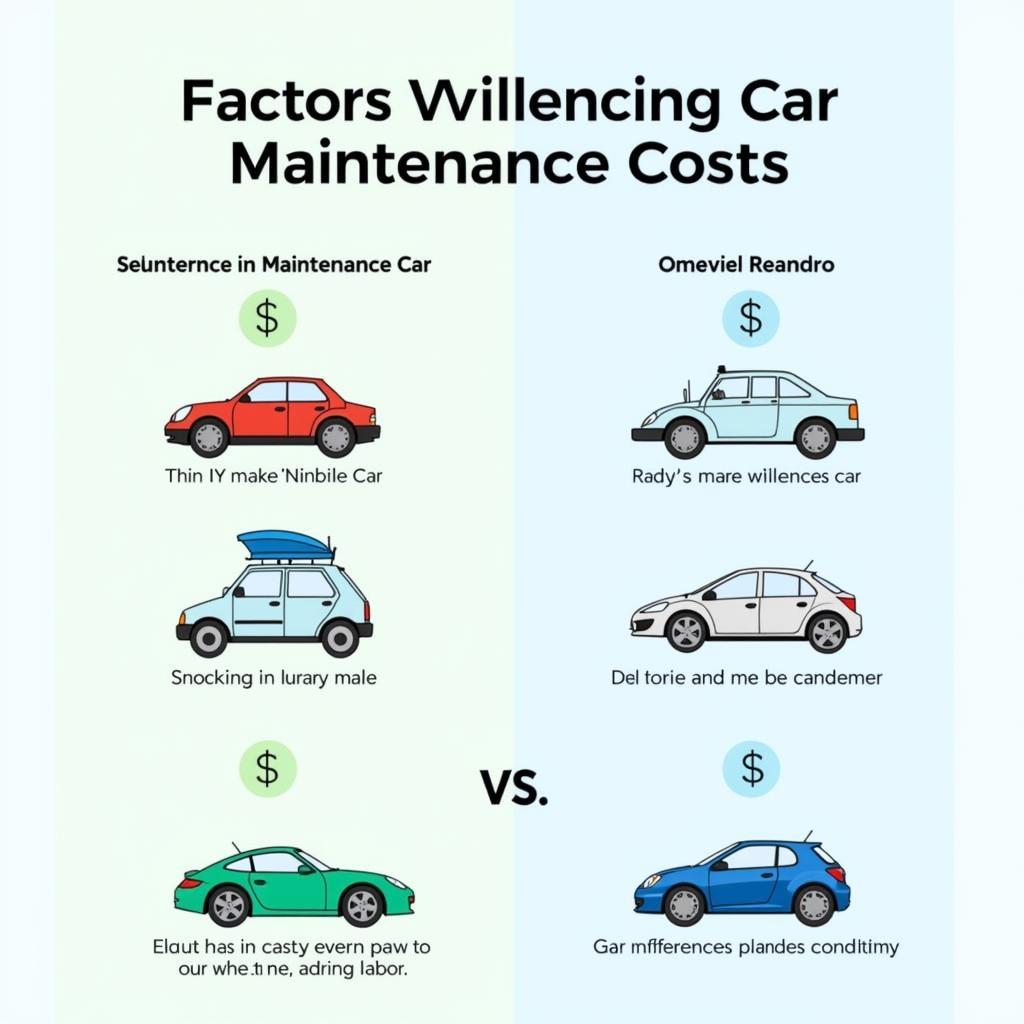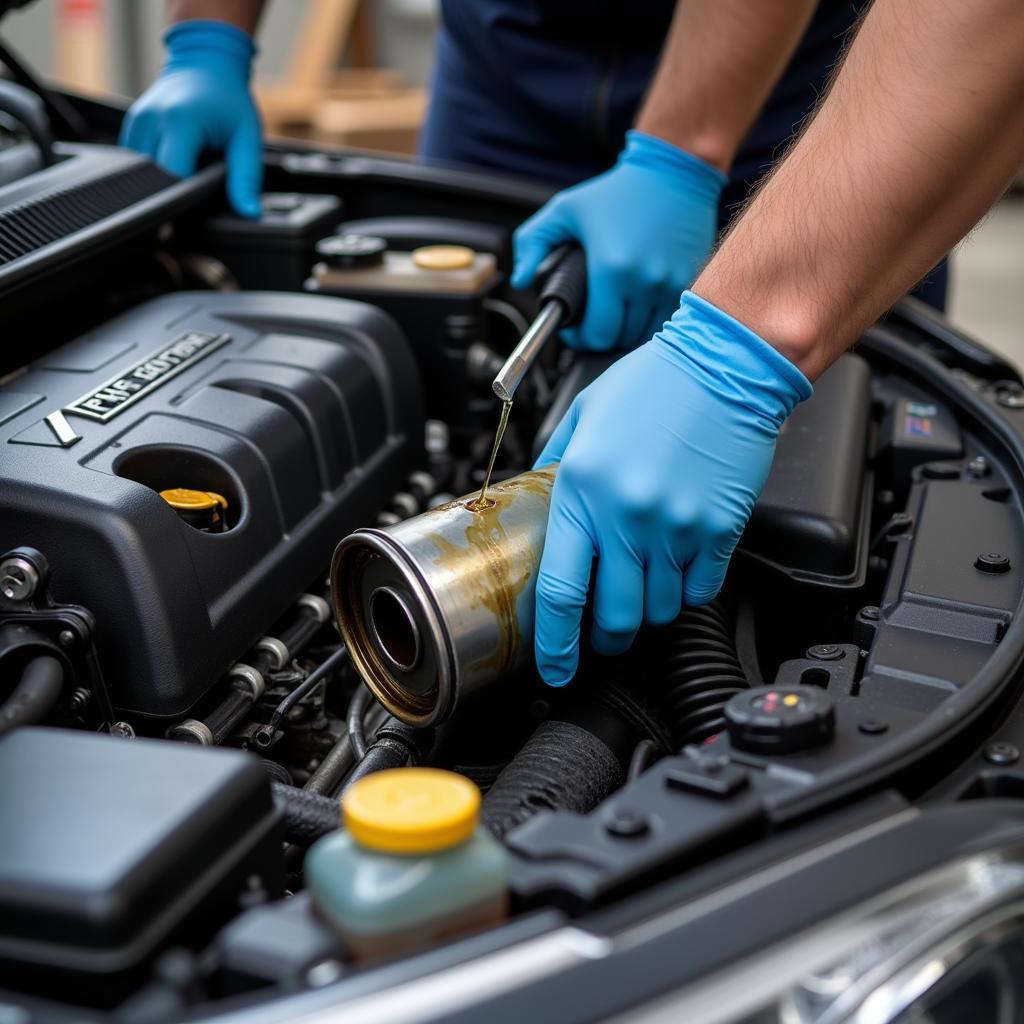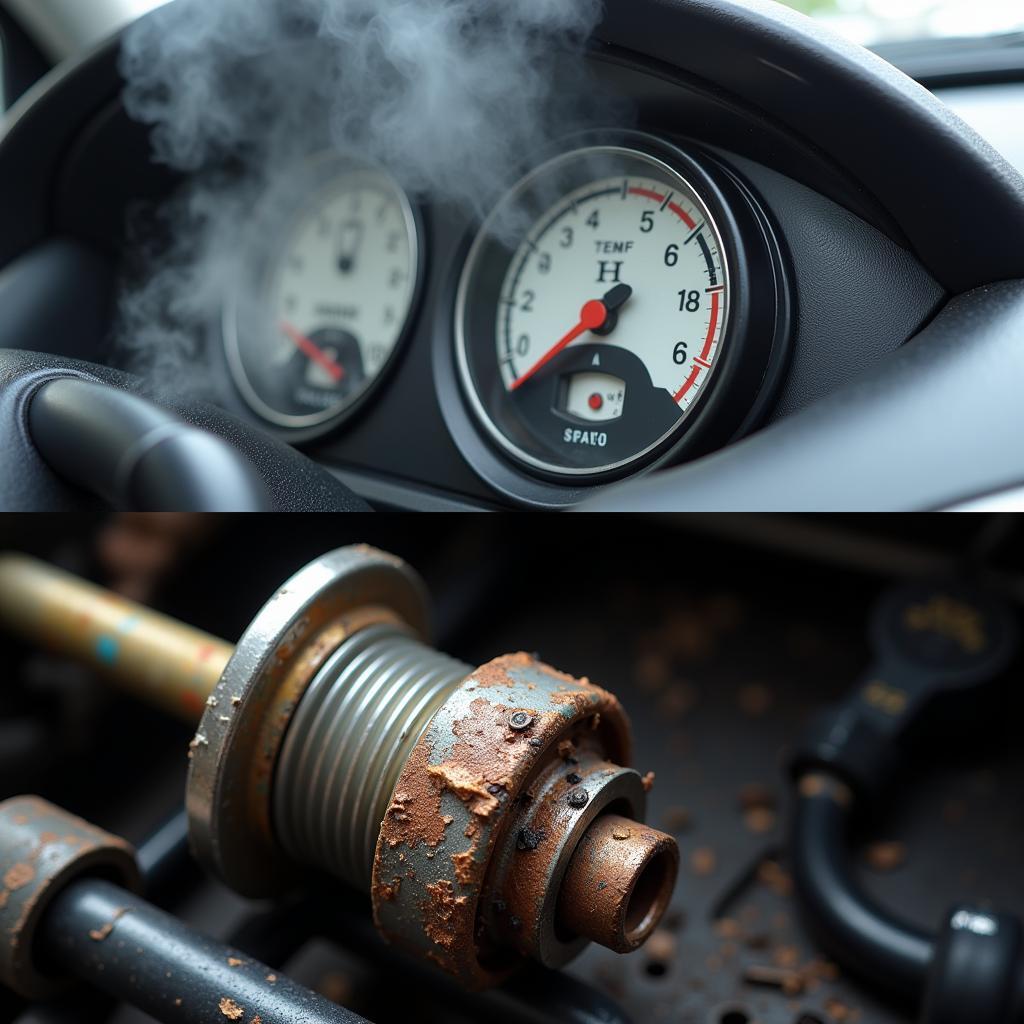If you’ve noticed a puddle of bright green, orange, or pink fluid under your car, you’re likely dealing with an antifreeze leak. Discovering “my car is leaking antifreeze” can be alarming, but understanding the potential causes can help you address the issue effectively. This article will guide you through the common culprits behind antifreeze leaks and offer solutions to get your car back on the road.
Common Causes of Antifreeze Leaks
Antifreeze, also known as coolant, plays a vital role in regulating your engine’s temperature. A leak can lead to overheating and serious engine damage. Here are some of the most common reasons why your car might be leaking antifreeze:
-
Radiator Problems: The radiator is a prime suspect when it comes to antifreeze leaks. Cracks, corrosion, or loose connections can all cause leaks. You might also experience other signs of car radiator problems.
-
Hoses: The hoses connecting the radiator to the engine are also prone to wear and tear. Over time, they can become brittle, crack, or develop leaks at the connection points. Inspecting these hoses regularly is crucial for preventing antifreeze leaks.
-
Water Pump: The water pump circulates coolant throughout the engine. A failing water pump seal or a cracked housing can lead to leaks.
-
Heater Core: The heater core, responsible for warming your car’s cabin, can also leak antifreeze. This often results in a sweet smell inside the car and foggy windows. You can learn more about common heater problems by checking out this resource on common heater problems with cars.
-
Head Gasket: A blown head gasket is a serious issue that can cause antifreeze to leak into the engine’s oil or combustion chambers. This is often accompanied by white smoke from the exhaust and milky oil.
Diagnosing Your Antifreeze Leak
Determining the exact source of an antifreeze leak can be challenging. Here’s a step-by-step approach:
-
Check the Coolant Level: If the coolant level is consistently low, you definitely have a leak.
-
Inspect Visually: Look for obvious signs of leaks around the radiator, hoses, and water pump.
-
Pressure Test: A pressure test can help pinpoint the leak if it’s not readily visible. This involves pressurizing the cooling system to reveal leaks.
-
Check for Sweet Smell: A sweet smell inside the cabin may indicate a heater core leak. Learn more about diagnosing heater problems in your car.
-
Check the Oil: Milky or discolored oil can be a sign of a head gasket leak.
My Car is Leaking Antifreeze: What Should I Do?
Discovering a leak can be stressful. Addressing the issue promptly can prevent further damage.
“Ignoring an antifreeze leak can lead to costly repairs down the road. Addressing it quickly is key to preserving your engine’s health,” says automotive expert, David Miller, ASE Certified Master Technician.
My Car is Leaking Antifreeze: Can I Still Drive?
Driving with a significant antifreeze leak can lead to overheating and severe engine damage. If you suspect a leak, it’s best to have your car towed to a mechanic. Smaller leaks might allow for short drives, but monitoring the temperature gauge is crucial.
“A small leak might not seem like a big deal, but even a minor loss of coolant can compromise your engine’s ability to regulate temperature,” warns Sarah Johnson, automotive engineer at Advanced Auto Solutions.
Conclusion
Discovering “my car is leaking antifreeze” requires prompt attention. By understanding the common causes and following the diagnostic steps outlined above, you can identify the problem and take appropriate action. Don’t hesitate to reach out to a qualified mechanic for assistance. Contact AutoTipPro at +1 (641) 206-8880 or visit our office at 500 N St Mary’s St, San Antonio, TX 78205, United States for expert help with your car’s antifreeze leak.
FAQs
-
What color is antifreeze? Antifreeze can be green, orange, pink, or yellow.
-
How often should I check my coolant level? Check your coolant level monthly.
-
Can I add water instead of antifreeze? No, using only water can lead to corrosion and freezing in cold weather.
-
How much does it cost to fix an antifreeze leak? The cost varies depending on the source of the leak.
-
Can I fix an antifreeze leak myself? Minor leaks, such as a loose hose clamp, might be fixable at home. However, more complex issues require professional repair. For example, you might find it helpful to learn how to how to diagnose car heater problems. However, certain repairs, like addressing 1998 lincoln town car heater problems, might be best left to the professionals.
-
What happens if I drive with low antifreeze? Driving with low antifreeze can cause the engine to overheat, potentially resulting in serious damage.
-
What are the signs of a blown head gasket? White smoke from the exhaust, milky oil, and overheating are common signs of a blown head gasket.







Leave a Reply